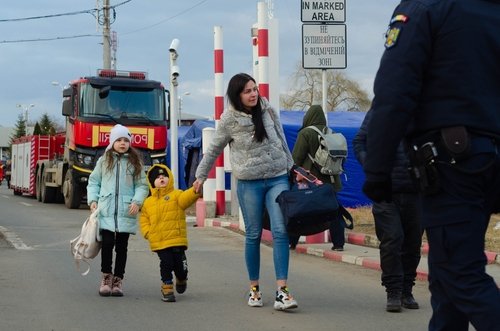Belgium (Brussels Morning Newspaper) EU interior ministers gathered today in Brussels to discuss a joint refugee policy to help cope with the millions of Ukrainian refugees fleeing from Russia’s invasion of their country.
According to the UN High Commissioner for Refugees (UNHCR), a vast majority of the 3.8 million Ukrainian refugees has sought safe haven in EU countries, with more than 2.2 million fleeing to Poland. A further 1.1 million have sought refuge in Romania, Hungary and Slovakia.
The tide of Ukrainian refugees threatens to overwhelm the four countries’ capacity to receive them. Polish officials have already warned that their asylum system is close to buckling under the pressure of so many requests in such a brief period of time.
The talks between EU ministers were slated to review and discuss a common, EU-wide approach to refugee resettlement issues, as well as plans to establish a centralised fund to support Ukrainian asylum seekers.
The Ukrainian refugee crisis is already being handled in a significantly different manner compared to how the EU dealt with the tide of Syrian and Iraqi refugees in 2015, when member-states were unable to agree about a common approach or on how they should share the refugee burden evenly.
Hungary’s Prime Minister Viktor Orbán was one of the harshest opponents of a common refugee policy but now Budapest is much more inclined to cooperate, with an estimated 349,000-plus Ukrainian refugees already residing within the country.
Middle Eastern refugees also faced significantly more systematic hurdles, amounting at times to treatment by individual EU governments that could easily be interpreted as discriminatory. In the absence of a joint refugee policy, a number of EU states, finding themselves on refugee routes, reportedly adopted a much more violent pushback policy, forcefully and potentially illegally turning back Middle Eastern refugees from their borders without granting them the right to request asylum. To date, Ukrainian refugees have faced no such problems.




